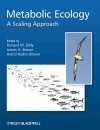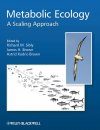By: Richard M Sibly(Editor), James H Brown(Editor), Astrid Kodric-Brown(Editor)
375 pages, colour photos, colour & b/w illustrations
![Metabolic Ecology Metabolic Ecology]()
Click to have a closer look
About this book
Contents
Customer reviews
Biography
Related titles
About this book
Most of ecology is about metabolism: the ways that organisms use energy and materials. The energy requirements of individuals – their metabolic rates – vary predictably with their body size and temperature. Ecological interactions are exchanges of energy and materials between organisms and their environments. So metabolic rate affects ecological processes at all levels: individuals, populations, communities and ecosystems. Each chapter focuses on a different process, level of organization, or kind of organism. It lays a conceptual foundation and presents empirical examples. Together, the chapters provide an integrated framework that holds the promise for a unified theory of ecology.
Metabolic Ecology is intended to be accessible to upper-level undergraduate, and graduate students, but also of interest to senior scientists. Its easy-to-read chapters and clear illustrations can be used in lecture and seminar courses. Together they make for an authoritative treatment that will inspire future generations to study metabolic ecology.
Contents
Notes on contributors
Preface
Introduction: Metabolism as the basis for a theoretical unification of ecology
Part I: Foundations
1. Methodological tools
2. The metabolic theory of ecology and its central equation
3. Stoichiometry
4. Modeling metazoan growth and ontogeny
5. Life history
6. Behavior
7. Population and community ecology
8. Predator-prey relations and food webs
9. Ecosystems
10. Rates of metabolism and evolution
11. Biodiversity and its energetic and thermal controls
Part II: Selected Organisms and Topics
12. Microorganisms
13. Phytoplankton
14. Land plants: new theoretical directions and empirical prospects
15. Marine invertebrates
16. Insect metabolic rates
17. Terrestrial vertebrates
18. Seabirds and marine mammals
19. Parasites
20. Human ecology
Part III: Practical Applications
21. Marine ecology and fisheries
22. Conservation biology
23. Climate change
24. Beyond biology
25. Synthesis and prospect
Glossary
References
Index
Customer Reviews
Biography
Richard Sibly is Professor in the School of Biological Sciences at the University of Reading where he teaches Behavioural Ecology and Population Biology. He researches metabolic ecology questions with members of Jim Brown's Lab at the University of New Mexico and also works to promote the use of Agent Based Models (ABMs) more widely in ecology.
James H. Brown is Distinguished Professor of Biology at the University of New Mexico, Albuquerque. He led the development of the Metabolic Theory of Ecology on which this book is largely based. He has a long history of research in biogeography and macroecology, taking a large-scale statistical approach to questions about abundance, distribution, and diversity.
Astrid Kodric-Brown is Professor of Biology at the University of New Mexico, Albuquerque. Her research interests include the behavioral ecology of freshwater fishes, especially the evolution of mate recognition systems and their role in speciation in pupfishes (Cyprinodon); the allometry of sexually-selected traits; and community structure and conservation of desert fishes.
By: Richard M Sibly(Editor), James H Brown(Editor), Astrid Kodric-Brown(Editor)
375 pages, colour photos, colour & b/w illustrations




































